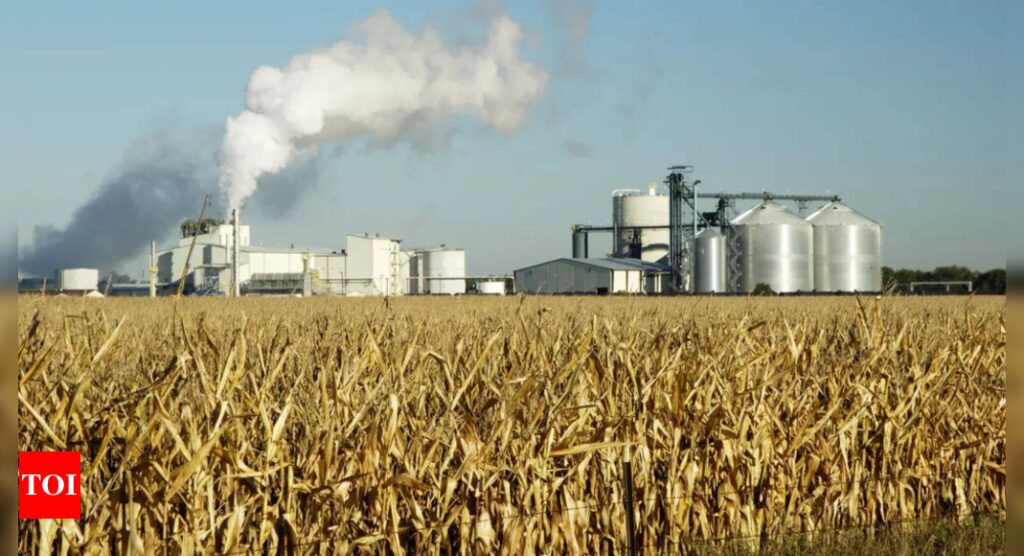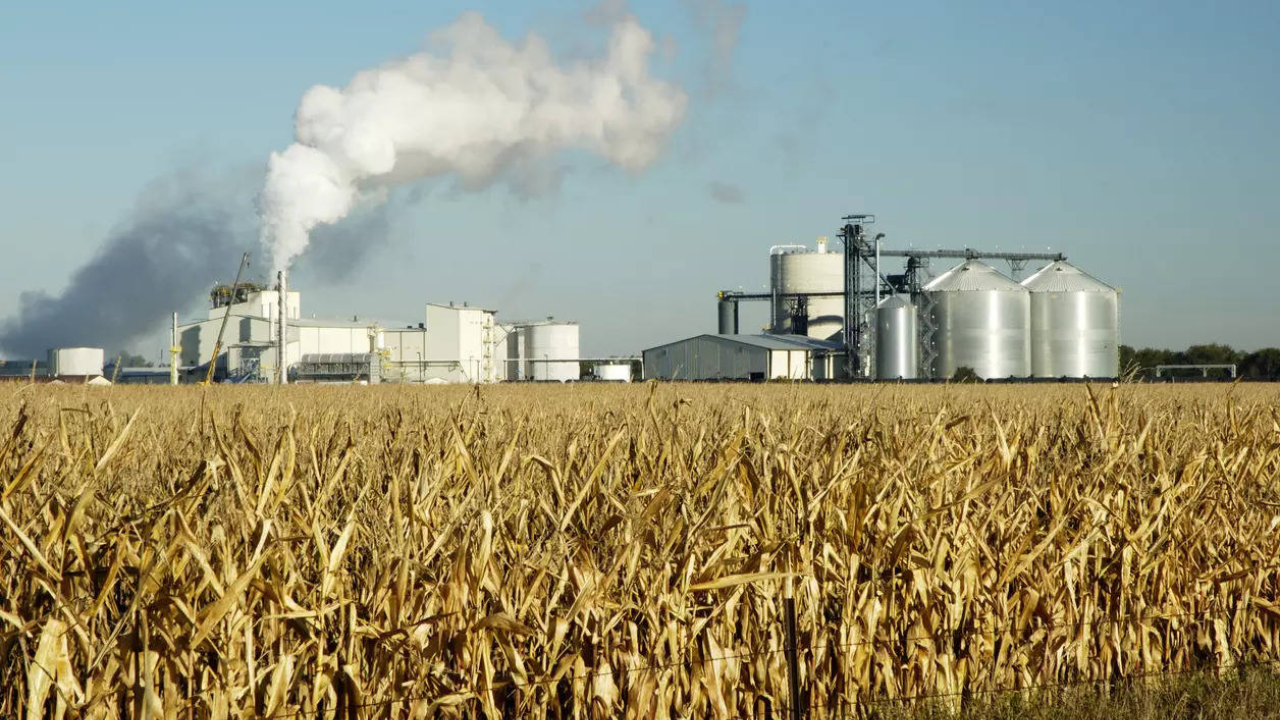[ad_1]
NEW DELHI: The government on Friday allowed use of both sugarcane juice and B-heavy molasses, a byproduct of the sweetener, to produce ethanol while capping the diversion of sugar for this purpose at 17 lakh tonnes. The decision came barely a week after it had banned the use of cane juice for ethanol production.
Sources said the decision was taken at a meeting of the committee of ministers on Friday evening amid demand from the sugar and sugar-based distillery industries to review the order.
Confirming the decision, Union food secretary Sanjeev Chopra told TOI, “The flexibility has been given for using both sugarcane juice and B-heavy molasses within an overall cap of 17 lakh tonnes of diversion of sugar. It will be up to sugar mills and the oil marketing companies (OMCs) to decide the share.”
Soon after the government had banned the use of cane juice for ethanol production “with immediate effect” on December 7, there were protests in Maharashtra and even deputy chief minister Ajit Pawar had said that he had taken up the issue with Union home minister Amit Shah. The sugar industry had also raised concerns as nearly three dozen distilleries were only sugarcane-based.
Earlier speaking on the sideline of a summit by ISMA, a sugar industry lobby group, Chopra had said that they had decided to allow diversion of 17 lakh tonnes of sugar for manufacturing of ethanol and a fresh notification would be out soon.
Amid the demand from the industry to allow diversion of another 13-14 lakh tonnes of sugar for ethanol production this year, the food secretary said that they will review the situation in a month or two.
Speaking at the summit, Chopra said, “In the past couple of weeks, what has happened is disappointing; may be distressing to the industry. But the fact remains that it is something that the government was constrained to do in the overall interest of the country and this is a temporary pause… This should not start ringing the alarm bell that things are going to collapse. We are keeping track of the developments and we have already conveyed to ISMA that we will be undertaking a periodic review and in case there will be even slightest of possibility, this particular order or decision is always reviewable. It can be reviewed and shall be reviewed.”
The industry body has also sought the revision in prices of ethanol made from B-heavy and C-heavy molasses, the by-products of sugar, to improve the financial health of the millers.
Sources said the decision was taken at a meeting of the committee of ministers on Friday evening amid demand from the sugar and sugar-based distillery industries to review the order.
Confirming the decision, Union food secretary Sanjeev Chopra told TOI, “The flexibility has been given for using both sugarcane juice and B-heavy molasses within an overall cap of 17 lakh tonnes of diversion of sugar. It will be up to sugar mills and the oil marketing companies (OMCs) to decide the share.”
Soon after the government had banned the use of cane juice for ethanol production “with immediate effect” on December 7, there were protests in Maharashtra and even deputy chief minister Ajit Pawar had said that he had taken up the issue with Union home minister Amit Shah. The sugar industry had also raised concerns as nearly three dozen distilleries were only sugarcane-based.
Earlier speaking on the sideline of a summit by ISMA, a sugar industry lobby group, Chopra had said that they had decided to allow diversion of 17 lakh tonnes of sugar for manufacturing of ethanol and a fresh notification would be out soon.
Amid the demand from the industry to allow diversion of another 13-14 lakh tonnes of sugar for ethanol production this year, the food secretary said that they will review the situation in a month or two.
Speaking at the summit, Chopra said, “In the past couple of weeks, what has happened is disappointing; may be distressing to the industry. But the fact remains that it is something that the government was constrained to do in the overall interest of the country and this is a temporary pause… This should not start ringing the alarm bell that things are going to collapse. We are keeping track of the developments and we have already conveyed to ISMA that we will be undertaking a periodic review and in case there will be even slightest of possibility, this particular order or decision is always reviewable. It can be reviewed and shall be reviewed.”
The industry body has also sought the revision in prices of ethanol made from B-heavy and C-heavy molasses, the by-products of sugar, to improve the financial health of the millers.
[ad_2]
Source link











More Stories
Congress replaces Kamal Nath, names an OBC as Madhya Pradesh chief | India News
Fire breaks out in ITBP camp in Srinagar; none hurt | India News
Parliament Security: Co-villagers give clean chit to Lalit Jha, parents to move court | India News